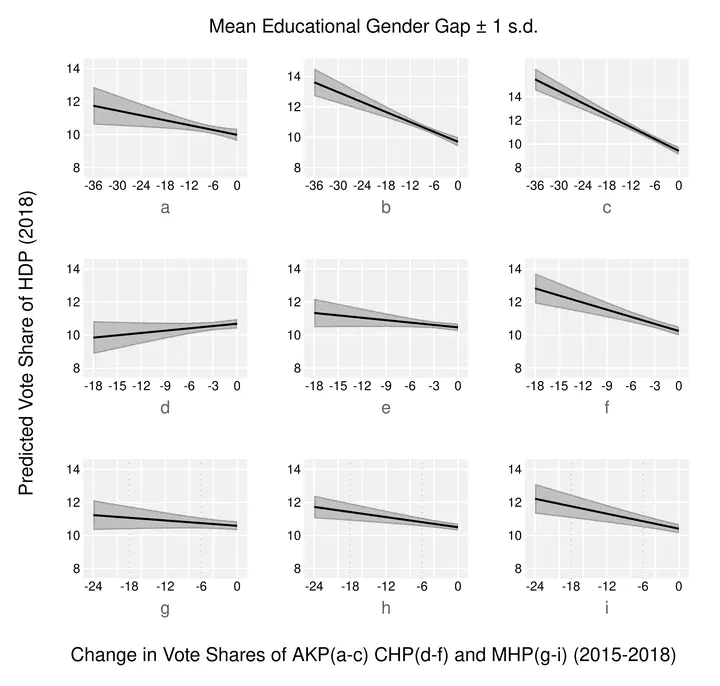
Abstract
The electoral fortunes of political parties under electoral authoritarian regimes are linked to prospects of democratization in these countries. Supporters of the government may become disenchanted with autocratization itself or economic conditions. Under these contexts, we do not expect wild vote swings and shifts in support generally follow a pattern of ideological congruity. However, when gender politics is salient, voters who are looking to shift their support are forced to confront a gender role incongruity clash and may instead continue to vote for their old party. I theorize that cultural attitudes towards women at the district level is the primary mechanism shaping the vote movement away from the government. I apply this extended theory of ideological and gender role incongruity to one of the worst cases of autocratization in the world, Turkey, utilizing district level electoral data. Taking into account the spatial dependence of the factors that affect voting behavior, I empirically demonstrate that for two ideologically incongruent parties such as left-wing and minority HDP and right-wing IYI, the salience of gender politics through the ranking of female candidates on the closed-lists and presence of national female leadership affected their vote share in line with my theoretical expectations in the 2018 general election. A normative implication of the paper is that gender can be used by democratic opposition in a directed way to cope with backsliding.